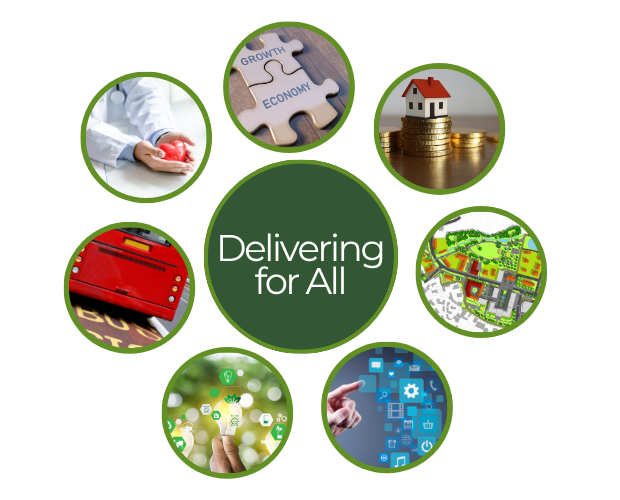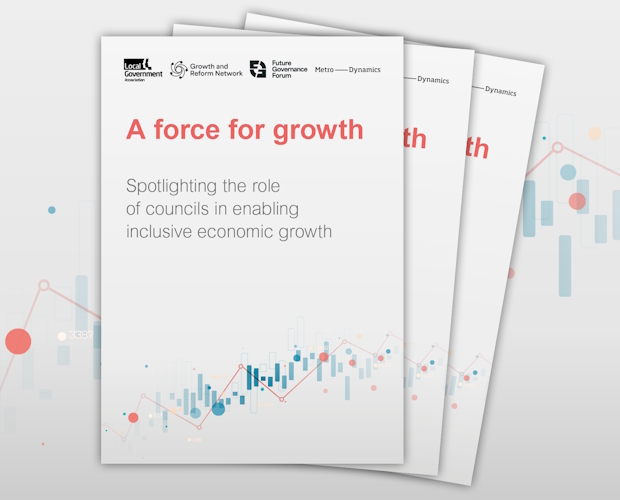T: 01822 851370 E: [email protected]
Visit RSN Survey about life in rural England to find out more.
A new policy framework from the Rural Services Network Every person, in every place, deserves the chance to thrive — including those living in rural, coastal and small-town communities. The Rural Services Network is proud to launch Delivering for All:...
The Government has published the provisional local government finance settlement for 2026/27, outlining planned funding allocations for local authorities in England and launching a statutory consultation on its proposals. While the final figures are still subject to confirmation through this...
The Government has launched an open Call for Evidence to inform a major new Young People and Work report, commissioned in November 2025 and led by the Right Honourable Alan Milburn. The review will examine the sharp rise in the...
The Countryside Alliance recently hosted a parliamentary roundtable on rural digital connectivity, bringing together parliamentarians, policymakers and industry experts to explore how next-generation technology could help close the digital divide facing rural communities. Chaired by Lord Herbert, the discussion focused...
Local Authorities across the country are waiting for the Provisional local Government Finance Settlement, due to be published this week. This will be the first settlement following changes made to the funding formula by the Government for the first time...
The Government has published its new Child Poverty Strategy, setting out measures it says will lift around 550,000 children out of poverty by the end of this Parliament. The strategy outlines plans to reduce living costs for families, increase childcare...
New research published by the Commercial Services Group examines how well public sector organisations are prepared for the reforms set out in the Employment Rights Bill, which introduces significant changes to employment rights and workplace practices across the UK. The...
The Local Government Association last week published a report entitled ‘A force for growth: Spotlighting the role of councils in enabling inclusive economic growth’. Produced in partnership with the Future Governance Forum, the report identifies the essential role that councils...
The popular campaign, Village Halls Week, is set to take place from 16-22 March 2026. The intention is always to raise awareness of England’s 10,000+ rural community buildings. In 2026 village halls across Scotland and Wales are invited to join...
NFSP postmasters have achieved a significant milestone in Period 7, surpassing the Evri scan-out Service Level Agreement (SLA) for the first time since the measure was introduced. The network recorded a scan-out performance of 97.3%, comfortably above the 97% target....
NEWSLETTER
Sign up to receive all our latest news and updates.
HOT TOPICS
Amid reduced public spending, fair resource allocation across regions is crucial. Despite a population larger than Greater London, rural areas receive significantly less funding for essential services, even though delivering these services in rural areas is more expensive.
Economic growth is widely acknowledged as essential for national wealth and prosperity and is a priority for political parties. Rural economies, employing millions and home to a higher proportion of small businesses, have potential for growth if barriers are removed.
Rural residents face distinct healthcare challenges, including limited access to transport, longer distances to medical facilities, an aging demographic, housing inadequacies, digital connectivity gaps, and difficulties recruiting health and care workers.
Rural communities are grappling with a severe affordable housing crisis, marked by high house prices, a lack of affordable housing, elevated living costs, and lower incomes, threatening their sustainability and vitality.
Transport is vital for the quality of life and economic health of rural areas, yet it faces challenges such as infrequent public bus services and less Government funding compared to urban regions.
Rural areas, encompassing a substantial portion of England's population and land, play a pivotal role in combating climate change and achieving the net zero target.
In an increasingly digital world, the lack of robust digital infrastructure in rural areas severely limits access to crucial services and stifles economic growth.
A future-focused vision for rural communities involves not just building the right homes in the right places but also ensuring thriving, sustainable communities.
SIGN UP TO OUR NEWSLETTER
Sign up to our newsletter to receive all the latest news and updates.













